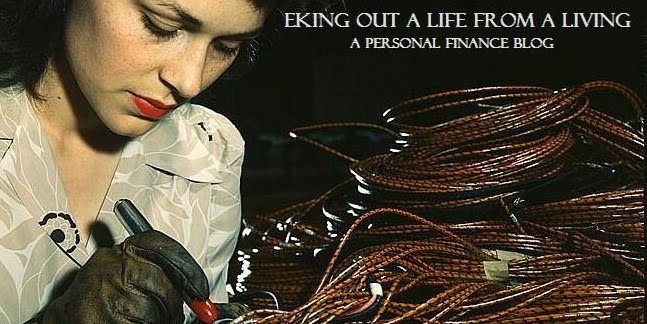A recent post on An English Major's Money discusses EM's first, green memories of money, and instead of responding there, I decided to address it here in a slightly different way.
I remember that money was something we didn't have, but managed to spend nonetheless. Our financial situation, to me, wasn't malleable. Instead, save the idea of a windfall, you either had money, or you didn't, and whether you did was almost a moral issue. We were "poor" like some other families were "nice." Of course, I can't objectively say how much we didn't have, but this is what I remember.
My mother had a bad TV-shopping habit, which kept the collectors ringing at all hours. I believe it was from her that I learned [non-]impulse control. These tendencies spilled over into the grocery cart, too. A gallon of ice cream half-eaten, followed by some self-flagellation, and then in the garbage it went.
My father thought himself quite frugal. He wasn't constantly buying things like my mother was, but he wasn't careful with money. His favorite things to say were, "we can always buy more," or "if you want it, get it," which always puzzled me ("with what?", I thought). A hard combination of pride and denial, I'm sure.
My parents are in their late 50s, and they have no savings. My bat-mitzvah money and part-time, minimum wage paychecks were contributed to the family pot. I was always willing to give up my money -- to my parents, my clientele, to anyone, really. I remember, as a 14 year old, refusing money after baby-sitting all day. I thought accepting the money would be greedy.
I'm sure Suze Orman would have a field day with that last bit. Is self-undervaluation like this exclusive to females?

No comments:
Post a Comment